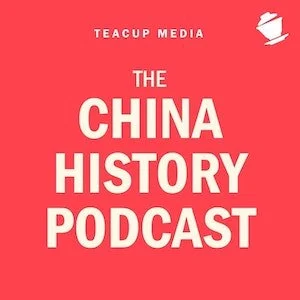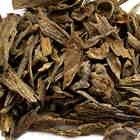Ep. 298 | Homer Lea
This episode is another listener request. In fact, Homer Lea's been requested regularly throughout the years. He's more of a footnote from history than actual history itself. Homer's story is kind of unique because of the stumbling blocks life threw his way. He didn't live long but in his short life he got to witness a lot and be a sort of "fly on the wall" to some of the great moments in Revolutionary Chinese history that we're all so familiar with. So let's go relive those years from 1908 to 1912 and the walk-on roles Homer Lea got to play as history unfolded.
Listen On Your Favorite Podcast Player
Terms in Episode
| Pinyin/Term | Chinese | English/Meaning |
|---|---|---|
| Qing | 清朝 | The last dynasty of Imperial Chinese history: 1644-1911 |
| Sun Yat-sen | 孙逸仙 | 1866-1925, Chinese statesman, physician, and political philosopher, served as the first provisional president of the Republic of China and the first leader of the Kuomintang. He is called the "Father of the Nation" in the Republic of China, and the "Forerunner of the Revolution" in the People's Republic of China for his instrumental role in the overthrow of the Qing dynasty during the Xinhai Revolution. |
| Guāngxù Emperor | 光绪帝 | The penultimate emperor of the Qing Dynasty. Nephew of the Empress Dowager Cixi |
| Yèhè Nàlā Wǎnzhēn | 葉赫那拉 婉貞 | Younger sister to the Empress Dowager Cíxǐ. Mother of the Guangxi Emperor |
| Empress Dowager Cíxǐ | 慈禧太后 | 1835-1908, Ruler of China for more than 40 years, mother of one emperor and aunt to another |
| Yuán Shìkǎi | 袁世凯 | 1859-1916, Major military and government official during the waning years of the Qing and the early years of the Republocan era |
| Rónglù | 荣禄 | 1836-1903, poilitical and military leader during the late Qing. He was one of the Empress Dowager Cixi's favorites. His grandson was Puyi, the last Qing emperor. |
| Kāng Yǒuwéi | 康有为 | 1858-1927, major political figure during the reform era who tried to enact all kinds of social and political reforms in China during the reign of the Guangxu Emperor |
| Liáng Qǐchāo | 梁启超 | 1873-1929, Major politician, social and political actyivist, journalist, intellectual and educator of the late Qing early Republican period |
| Ng Poon Chew | 伍盘照 | 1866-1931, major figure in Chinese-American history. Author, fighter of Chinesde civil rights, and publisher of the first Chinese language daily newspaper outside of China |
| Toi San | 台山 | Coastal city on the western side of the Pearl River Delta. A lot of Chinese from that city and the surrounding counties to the north of them, migrated to cities all over the world. |
| Bǎo Huáng Huì | 保皇会 | Chinese Empire Reform Association |
| Zhūgě Liàng | 诸葛亮 | 181-234 AD, Chinese statesman, military strategist and politican during the Three Kingdoms period |
| Sūnzǐ | 孙子 | 544-496 BC, tradition hails him as China's greatest military strategist, The book which bears his name is a guide to military strategy |
| lǎo wài | 老外 | A foreigner |
| Yung Wing | 容闳 | 1828-1912, Chinese-American diplomat and businessman, first Chinese graduate of Yale in 1854 |
| Wǔchāng | 武昌 | City in Hubei province. Part of the metropolis of Wuhan |
| Xīnhài Revolution | 辛亥革命 | The uprising that brought down the Qing Dynasty. It began in Wuchang on October 10, 1911 and lasted four months and two days. It led to the establishment of the Republic of China |
| Emperor Pǔyí | 溥仪 | The final emperor of the Qing Dynasty, immortalized in the West in the Bertolucci movie The Last Emperor |
| Sūn Fó | 孙佛 | 1891-1973, major official in the KMT and Republic of China government. His father was Sun Yat-sen |
Resources
Books/Articles
Homer Lea: American Soldier of Fortune by Lawrence M. Kaplan
Homer Lea: American Soldier of Fortune by Lawrence M. Kaplan (Amazon)
The Valor of Ignorance by Homer Lea
The Day of the Saxon by Homer Lea
The Vermilion Pencil by Homer Lea
“Homer Lea and the Decline of the West” by Thomas Fleming for American Heritage

















his all took place in the final moments of the Warlord Era, right after the Central Plains War. This act perpetrated by warlord Sun Dianying 孙殿英 epitomized the venality of these men.